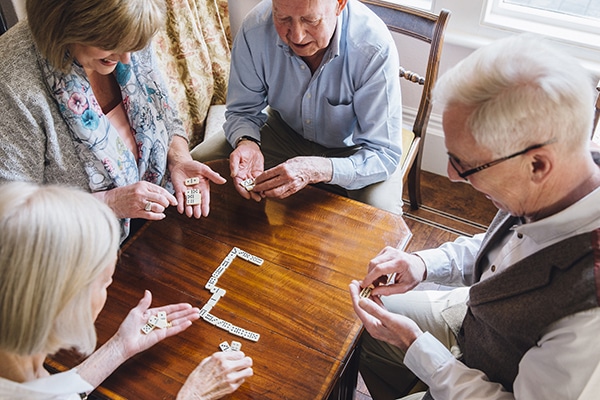There has been a lot in the media recently about the special bonds between care home residents and children. It is heart-warming to see one of our residents light up when a grandchild visits. Those precious moments of pure joy for everyone involved when an impromptu game of Snap makes everyone smile. Sometimes, children are unintentionally kept away for fear it may be too distressing for them, but children don’t have pre-conceived ideas like adults often do. There are less barriers for them. We could all learn something from this.
We need to create an open and friendly environment for the family care-givers, relatives and friends of our residents. Welcome them all as part of the team right from the beginning.
Be approachable, get to know them and let them get to know you. You need to know what you can expect of each other and build up a trusting relationship. Try to make your first information gathering session more informal and conversational. Get the necessary forms filled in but think about setting aside some time to just chat and find out about the things that really matter to them. Use this opportunity let them know how they can help you (they are probably feeling redundant) and how you can help them.
It is so important to find out the little things that really matter to your residents and their loved ones. Starting some life story work from day one is so rewarding and can be an ongoing process to create a resource full of useful information about your resident’s life, their likes and dislikes and what makes them tick. Nothing is too small or insignificant to be included. Knowing that Arthur is a huge fan of Countdown, or that Elsie can still knock out a great tune on the mouth organ is just as important as knowing what their favourite drink is or what medication they take. This inside knowledge can actually make your job easier and more enjoyable.
But what can family and friends actually do?
Try to encourage familiar activities that the resident and his loved ones have done before, or if you have identified a new interest then share this with family for them to try.
If the resident’s needs are less complex the family can help with practical activities such as bathing, dressing and mealtimes if this is something they are comfortable with. A walk outside in the garden or a trip out can be very therapeutic if this is something the resident and/or their visitor can cope with.
Leisure activities often provide the most fulfilment. Encourage visitors to watch a favourite TV Program together or listen to some music (remember Arthur and Elsie!). Reading a book or looking at magazines on a favourite topic can stimulate conversation and pass the time quite pleasantly. Ipads or laptops can be useful for looking at old film clips, music or photographs. The BBC have a great archive of reminiscence media.
Consider having some toys and games available for any visiting children and the adults are sure to enjoy them just as much. Who doesn’t enjoy a game of Buckaroo!
A team with residents, staff, relatives and friends on board creates a positive environment where you learn from them and they learn from you. They are an asset and although it is time consuming to build these relationships to everyone’s advantage it is worth the time spent for the rewards that come later.
“Living Well Through Activity in Care Homes” is a free online resource from the College of Occupational Therapists full of practical ideas and free training material
SCIE “Involving the family and friends of people with dementia”






